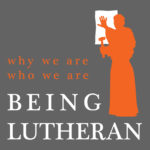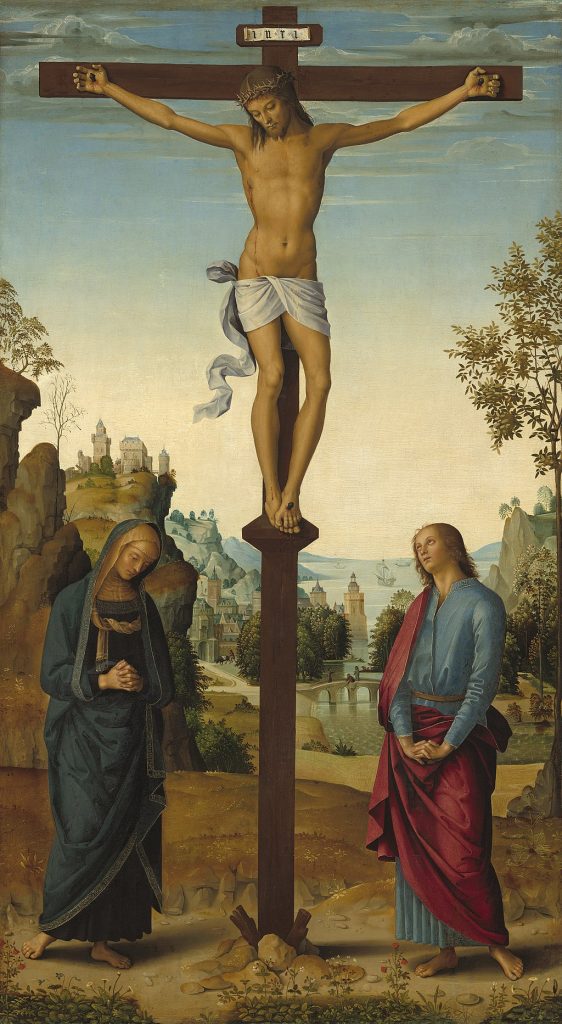
/
RSS Feed

In this episode, Brett, Brian, and Jason continue their examination of Holy Communion in Martin Luther’s Small and Large Catechisms. Today, they take up the question, “What are the benefits from Holy Communion?” This question really re-phrases the question, “Why does the Church practice Holy Communion at all?” In thinking about the answers to these questions, it is important to remember that Christ does nothing flippantly – he doesn’t waste words.

Another great episode guys. I really love Jason’s point about how Communion is an antidote for the ill-defined Gospel. When I started attending a Reformed Church I started, for the first time, to experience weekly Communion. One of the reasons I love weekly Communion is that if the pastor swings and misses presenting a clear Gospel message in his sermon he is forced to discuss it at the Table. I love it when our pastors tie their sermon to Communion. My first Reformed pastor used to descend from the pulpit taking his place behind the Table as he concluded his sermon tying his sermon directly to the Table. It was always amazing. I have never had a pastor do it better than he did. My current pastors don’t do it because we do not go directly from the sermon to the Table. However, almost every time they do a good job of tying their sermon to the Table once we get their in our Liturgy.
I used to joke that if a pastor gets behind the Table and has to say something like “well any way” in order to transition to the Table their sermon was probably void of the Gospel. But the great thing is that he can at that moment remind us of the Gospel so that we don’t go a Sunday without hearing it.
One thing I have never thought of before this episode is which of the words of the institution of this Sacrament we Reformed emphasize. I don’t know the answer to that question. I suspect there isn’t one word (“is”) or phrase (“for you”). I think we take the time to emphasize different aspects of it over the course of our participation in the Table throughout the year.
Here is what the Westminster Confession of Faith says about this Sacrament:
“Our Lord Jesus, in the night wherein he was betrayed, instituted the sacrament of his body and blood, called the Lord’s Supper, to be observed in his church unto the end of the world, for the perpetual remembrance of the sacrifice of himself in his death, the sealing all benefits thereof unto true believers, their spiritual nourishment and growth in him, their further engagement in and to all duties which they owe unto him, and to be a bond and pledge of their communion with him, and with each other, as members of his mystical body.”a
a 1 Cor. 11:23-26; 1 Cor. 10:16,17,21; 1 Cor. 12:13.
So, you can see that we think there are multiple aspects of this Sacrament sort of like the different ways in which a diamond affects light. There is a remembrance, a sealing, spiritual nourishment and growth, a bonding and, a pledging. All of these have been emphasized at different times by our pastors in addition to Jesus’ body and blood truly being present and that this is “for you”. So, I am not sure our tradition emphasizes just one word or phrase.
Again, thank you so much for the service you are providing to the Body of Christ. All three of you and your ministries are in my prayers.
Your brother in Christ,
JT
JT,
Thank you again for the kind words. I am already appreciating immensely the exchanges we’ve been able to have on this topic. Looking forward to more as the series continues!
Jason,
I can say the same.
Another thing this podcast brought to my mind when listening to it again was the practice of people coming forward verses having the elements disbursed and everyone eating and drinking at the same time. In my denomination, the PCA, we have some congregations have the members come forward but the majority report seems to be having us all eat and drink at the same time. Again, this might be because we emphasize the meal aspect of the Sacrament. I have jokingly referred to people coming forward as “drive through”.
What are the reasons for having people come forward? I suspect it has something to do with fencing the Table.
I’m really clueless when it comes to how certain Communion practices started. I would assume that it has a lot to do with the style of church building and the set up of the altar area.
Again, I see the communion meal being missed by having people come forward to an altar. We do not commune with each other. It seems to me that this way of dispensing the elements ends up being very individualistic and that is why I joke about this approach turning the meal aspect of the sacrament into a person going through a drive through rather than sitting down and communing with others in order to emphasize the oneness of the Church.
The other thing about passing the elements around and having everyone eat and drink at the same time is that it provides an opportunity for us to minister to each other. In Ephesians 5:11-12 we are told that one of the reasons God gave gifts to the Church was in order ” to equip the saints for the work of ministry”. Communion is part of “the work of the ministry”. I see Communion as an opportunity for the gifts of the Church (“apostles, the prophets, the evangelists, the shepherds and teachers”, in other words, you guys) to teach us how to minister to others. How can this be done during communion? By each of us saying to the person we hand the elements to “this is His body given for you” and “this is His blood shed for you”. By saying these words we are giving the gospel to the person sitting next to us. We are encouraging those people to believe that their sins are forgiven in the sacrifice of Jesus that we are remembering as we eat His flesh and drink His blood.
It also would encourage the person sitting next to someone who didn’t take the elements to possibly ask the person why they didn’t believe they were worthy of participating leading to a witnessing opportunity to the unsaved and a ministry opportunity to a saved person struggling with their faith. In other words, “saints [doing] the work of ministry”.
Any way, I could go on. Sorry for going on this far. I am so taken by what all happens and could happen during and following Communion that it is hard sometimes for me to stop.
Keep up the good work.
Your brother in Christ,
JT
I wonder if there isn’t more to the conversation than just the differences between Calvin and Luther. JT speaks from a Presbyterian perspective. Baptists come in a great many shapes and colors, so strictly Calvinist and others an amalgamation of various traditions but largely Arminian. I was at a Baptist service once when communion was served. The words the pastor spoke are, “Jesus said that the bread symbolizes his body.” “Jesus said that the (I don’t remember, did he say wine or juice?) symbolizes his blood.” Those aren’t the words of institution. They do, however, clearly indicate the theology of Holy Communion at that particular Baptist congregation. (Oh, and please don’t excommunicate me for having attended a non-Lutheran worship service – it wasn’t the first and it won’t be the last, I suspect.)
Christian,
I was raised in Independent Baptist Fundamentalist circles. We “celebrated” communion quarterly. It always seemed to get in the way of the sermon and the invitation at the end of the service. I had no real appreciation for it or its benefits. In the Westminster Confession of faith it talks about “the efficacy of a sacrament” and that was a total foreign concept to me. I am now convinced that sacraments are efficacious and that is why, for me, worship is not complete without having Communion.
The emphasis in my IFB upbringing was always on the remembrance aspect of the meal. It is an important aspect of the meal that we have a tendency to de-emphasize because of what we perceive to be the Zwinglian’s singular emphasis upon it. So, I still appreciate their emphasis on that aspect of the meal. However, I always felt as if I left that meal still hungering for more. I have found that in the multiple aspects that are emphasized in the Reformed celebration.
I will say that I never heard any of my IFB pastors say that “Jesus said that the bread symbolizes his body” or “Jesus said that the grape juice symbolizes his blood.” With all of their deficiencies, they were still very committed to what Scripture, specifically the KJV, actually said. An emphasis was placed on us memorizing large passages of it. So, any misquoting, even in the slightest way, would have been noticed by even the youngest in our community.
I hope your experience was one that is not a typical one for our Baptist brothers and sisters. I do know that nothing has changed in this regard in my old IFB circles.